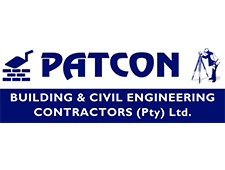BLENDCOR: Delivering Excellence Through Innovation and Investment
Co-owned by international oil giants Shell and BP, Blendcor was formed in 1992, and from its Durban home continues to strive for excellence in the manufacture of lubricants, oils and greases to ensure the slick running of vital sectors such as automotive, mining and energy.
In its various guises, Blendcor has been behind the production of top-quality products and the fullest range of lubricants for coming up to 70 years, with its initial founding dating back to 1956 in the Port of Durban alongside other major industrial outfits.
Geared toward automotive, mining, and energy related products, Blendcor is pivotal in the smooth running of industry as a whole in South Africa, making businesses move and thrive, enabling continued opportunity creation and keeping the country’s lights on.
“We are a significant manufacturer of lubricants and grease, jointly owned by Shell and BP in South Africa,” details CEO Wonderboy Cele. “Our vision is to deliver excellence through customer satisfaction, borderless thinking, innovation and teamwork.”
LONG-TERM SUSTAINABILITY
“At Blendcor, we believe in achieving business excellence through attaining the best possible results.” Operating from a 53,000m² site situated in Island View, Durban, Blendcor produces almost all types of grease and industrial lubricants at its single facility, which has an annual production capacity of more than 200 million litres and 8-12 kilotons of grease – the largest blending facility in Africa selling direct to the market.
The lubricants business is, without question, a high-focus sector receiving keen attention from an environmental point of view, Cele recognises, and operating within it has meant that Blendcor has had to make sustainability a key focal point. “There are a number of initiatives and actions that we have had to really fast-track,” he reveals, “not only from a purely environmental standpoint, but also as a tool to make us cost-competitive.
“We have had to move quickly and dynamically. Our entire forklift truck fleet has now migrated away from the use of gas to solar and electric power in a very short space of time. We have also explored a range of opportunities around energy savings, and currently have a solar farm project underway across the plant, while we use natural lighting throughout our warehouses.
“Before the end of this year, we are targeting the rollout of a fully operational solar farm across the site, which will start to bring about savings in 2025.
“We have been very busy exploring alternate sources of energy,” Cele underlines, with some 50% of the whole facility’s energy due to come from green solar in 2025, and only increasing thereafter. “This is in entirely line with our sustainability map, which is now embedded in our way of doing business and tracked and managed on a monthly basis.”
Three factors have converged to result in this significant, and welcome, shift, Cele details. “From a market point of view, as consumers we are much more educated and sensitive as to the make-up of the products that we are using – we are now asking questions as where they come from, and how they are manufactured.
“Our customers, predominantly in the automotive industry, have become much more highly attuned to the environmental impact of the products we supply them.”
INVESTMENTS THROUGHOUT
“Our shareholders, too, have decarbonisation targets which they have set out for themselves, and we, as part of their value chain, need to ensure that we are actively assisting in targets their being met.” Challenges surrounding energy provision have also played a large role, Cele assesses. “It is expensive, and a big chunk – almost 35% – of our overall operating costs are apportioned to utilities. It simply makes good business sense for us to explore sustainability to its fullest potential.”
People development, and realising human potential, has long been a further key pillar for Cele, “capacitating them correctly to deliver on their scope of work,” he explains. “We have recently undergone a full-scale organisational review, scrutinising new and existing roles and how they can be enhanced, and recruiting new people. We want to ensure that we also develop robust succession plans for the most critical of these, with the right people developed alongside them.”
Cele demonstrates an admirable selflessness when it comes to an oft-cited drawback of such a noble policy: this training and development results in these employees attaining other roles. “Sometimes people do find better opportunities,” he concedes, “but ultimately our purpose as an organisation is not to just develop and retain people, but to allow people to achieve a high-quality path to purpose.”
Automation has accelerated markedly of late, Cele goes on, proudly reporting the install of two robotic palletisers in as many years. “Clearly, we have then had to upskill our people in order to be able to operate these new pieces of equipment,” he adds, “a further competence acquisition opportunity that we have gladly taken. We have also made massive investment into new filling lines, including two packing machines from Italy’s SMI – one currently being installed and one already running.”
Two further investments have been made into systems, Cele reveals, namely warehouse management and an upgrade of its quality management system. “Even this feeds into our sustainability aspirations,” he explains, “as it allows us to pursue a paperless route – hopefully by 2030.”
Rather than hamper development and growth, Cele says, economic and geopolitical challenges have instead propelled Blendcor to greater heights and into new territory. “We have been forced to adjust and pivot,” he explains. “The automotive industry, for example, one of the predominant industries which we supply, has stalled in growth, but we have been busy in research and development into EVs and the opportunities they present for our shareholders.
“While we continue along our growth path, there are definitely opportunities to consolidate,” Cele assesses. “From a plant point of view, undoubtedly there will continue to be new developments and changes, in line with our five-year strategy. It is likely, on the other hand, that volume growth will remain flat between this year and next. This is why it is so crucial that efficiencies are supporting whatever the volume projections are for the period.”
Ultimately, it is quality that will protect Blendcor’s market share from potential erosion by the competition, as well as the trust placed in it by the biggest brands and availability countrywide of Blendcor products. Alongside the heft of its two shareholders and their combined history and marketplace credibility, Blendcor is set to keep running smoothly. “Above everything else, and to a unique degree in the sector in which we operate, quality and safety are paramount,” Cele concludes.
“We have to maintain, or even improve, our performance in these two areas while ensuring that we manage our costs in line with the volume trends that we foresee.”


